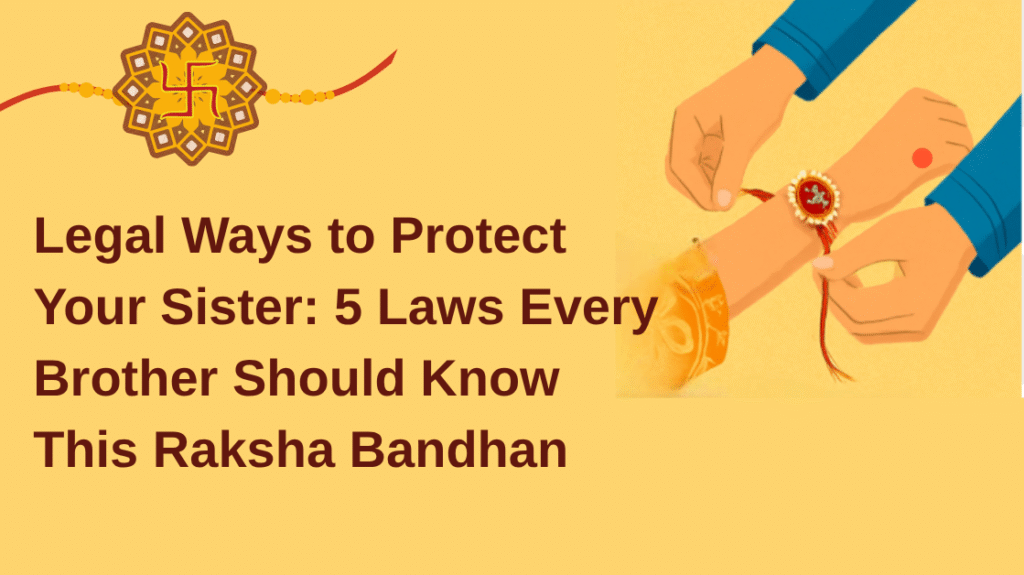Raksha Bandhan is a festival that celebrates the beautiful bond between brothers and sisters. While tying a rakhi signifies a promise of protection, true empowerment comes not just from rituals, but from awareness of rights like ancestral property rights. One such right often misunderstood or denied is a sister’s share in ancestral property. In this article, let’s explore what Indian law says about sisters’ rights — especially under the Hindu Succession Act — and how it applies today.
🧾 What Is Ancestral Property?
Ancestral property refers to property inherited up to four generations of male lineage. It is passed undivided from the father, grandfather, great-grandfather, and great-great-grandfather.
Earlier, only sons had coparcenary rights in such property. But things changed after 2005…
👩⚖️ Legal Rights of Sisters in Ancestral Property (Post-2005)
The Hindu Succession (Amendment) Act, 2005 brought a revolutionary change:
- Daughters were given equal rights as sons in ancestral property.
- They became coparceners by birth — just like sons.
- This applies even after marriage.
✅ Key Points:
- Applies to Hindus only (not Muslims or Christians).
- The father must have been alive as of 9 Sept 2005 for the daughter to claim coparcenary.
- Daughters can ask for partition, inherit, and even sell their share.
⚖️ Landmark Judgment: Vineeta Sharma v. Rakesh Sharma (2020)
The Supreme Court clarified in this 2020 case:
- Daughter’s right is by birth, not dependent on whether father is alive or not.
- They have equal rights as sons, irrespective of the date of birth.
👉 This cleared confusion and reinforced the equal status of daughters.
🔍 What If a Sister Is Denied Her Share?
A sister can:
- File a partition suit in civil court.
- Send a legal notice to brothers or other co-heirs.
- Approach the Lok Adalat for faster resolution.
📌 You should consult a property lawyer and gather property documents, proof of relationship, and land records.
🙋 Common Myths Around Sisters’ Rights
| Myth | Reality |
|---|---|
| Married sisters lose rights | ❌ False. Marriage has no effect. |
| Only sons can inherit ancestral property | ❌ False. Daughters are equal coparceners. |
| Sisters need to live in the house to claim | ❌ Not required. |
💡 Raksha Bandhan Reflection: Awareness Is the Real Protection
This Raksha Bandhan, let us go beyond the ritual and ensure equality within families. Educating sisters and brothers about legal inheritance rights is a true celebration of love and fairness.
✅ FAQs
Q1. Do Muslim sisters have the same property rights in India?
Ans: No. Muslim property laws differ. Under Muslim law, sisters inherit a specific share depending on heirs.
Q2. What if the father died before 2005?
Ans: After Vineeta Sharma judgment, daughters still have rights. Consult a lawyer for specific details.
Q3. Can a sister sell her inherited property?
Ans: Yes, once partition is done and title is clear.
🧭 Conclusion:
Understanding legal rights is the first step toward justice. This Rakhi, share this post with your sister or brother — because real protection is legal protection.




Pingback: Legal Ways to Protect Your Sister: 5 Laws Every Brother Should Know This Raksha Bandhan
Pingback: Cyber Safety Tips for Sisters: How to Stay Safe Online - Legal Guide India